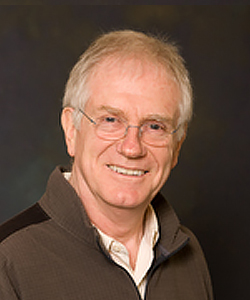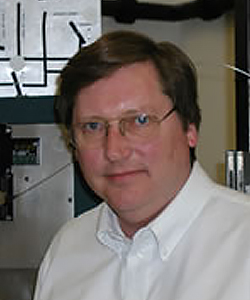Dave Baxter
Dr. Baxter's research is focused in the area of neutron scattering, with an emphasis on the development of new neutron instrumentation and the application of that instrumentation to important problems in materials research. The instrumentation work is split between the development of novel neutron moderator designs and materials, and a new project devoted to instrumentation that exploits manipulation of the neutron spin to enhance resolution without sacrificing intensity and to provide novel probes of magnetic structure and dynamics in materials. Neutron scattering is also being used to investigate the structure of fluids in confined geometries and hierarchical materials such as bone. In addition to this work with neutron scattering, he is conducting fundamental investigations of novel materials, including structural, magnetic, and transport studies of nanostructured materials.





